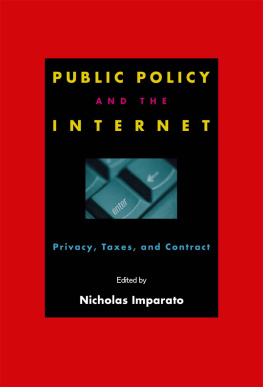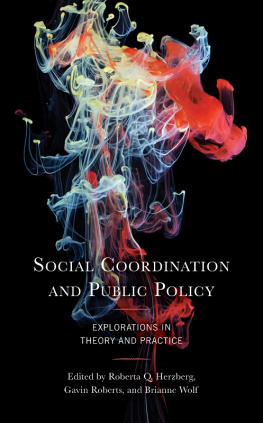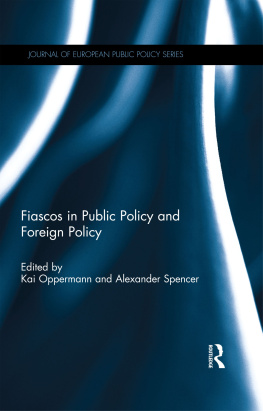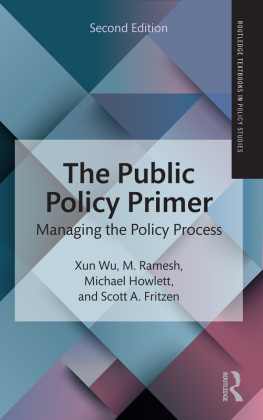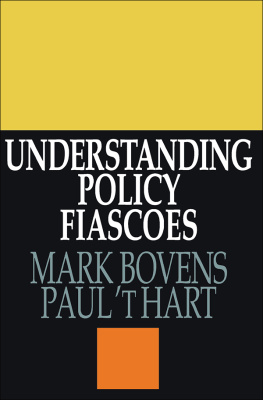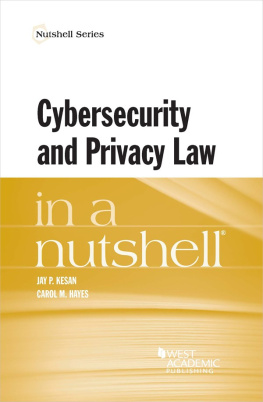The Hoover Institution gratefully acknowledges generous support from
TAD AND DIANNE TAUBE
TAUBE FAMILY FOUNDATION
KORET FOUNDATION
Founders of the Program on American Institutions and Economic Performance
and Cornerstone gifts from
SARAH SCAIFE FOUNDATION
The Hoover Institution on War, Revolution and Peace, founded at Stanford University in 1919 by Herbert Hoover, who went on to become the thirty-first president of the United States, is an interdisciplinary research center for advanced study on domestic and international affairs. The views expressed in its publications are entirely those of the authors and do not necessarily reflect the views of the staff, officers, or Board of Overseers of the Hoover Institution.
www.hoover.org
Hoover Institution Press Publication No. 481
Copyright 2000 by the Board of Trustees of the Leland Stanford Junior University
All rights reserved. No part of this publication may be reproduced, stored in a retrieval system, or transmitted in any form or by any means, electronic, mechanical, photocopying, recording, or otherwise, without written permission of the publisher.
First printing, 2000
05 04 03 02 01 00 9 8 7 6 5 4 3 2 1
Manufactured in the United States of America
The paper used in this publication meets the minimum requirements of American National Standard for Information SciencesPermanence of Paper for Printed Library Materials, ANSI Z39.48-1984.

Library of Congress Cataloging-in-Publication Data
Public policy and the Internet: privacy, taxes, and contract / edited by Nicholas Imparato.
p. cm.
Includes bibliographical references and index.
ISBN 0-8179-9892-6 (alk. paper)
1. Internet (Computer network)Law and legislationUnited States. 2. Electronic commerceLaw and legislationUnited States. 3. Electronic commerceTaxationLaw and legislationUnited States. 4. Contracts United StatesData processing. 5. Privacy, Right ofUnited States. I. Imparato, Nicholas, 1944-
KF390.5.C6 P83 2000
346.73022dc21
00-026125
Contents
Mary J. Cronin
Charles E. McLure Jr.
Margaret Jane Radin
Index
Foreword
T he Hoover Institution has long strived to generate ideas defining a free society. The advent of the Internet, a huge development in our society, is a symbol of freedom of information and commerce. It is natural for government to invite itself to consider regulations therein. Thus, it is important that policy thinkers be prepared to articulate the role of government and public policy as this new technology flourishes.
The Hoover Institution takes pride in being a first-class convener of intellectual thinking on public policy concerns. This institutional attribute is easily highlighted given our location in the heart of Silicon Valley. We have access to some of the pioneers of this technology and had an opportunity to convene an important gathering to discuss sweeping issues. Herewith, we present papers by three experts. Earlier versions of these papers led more than twenty leaders of the financial and computing industries to convene at the Hoover Institution to discuss the impact of proposed public policies on Internet communication and commerce.
Hoover research fellow Nicholas Imparato conceived of this project, identified the participants, directed the discussion, and edited this book. This is Imparatos second effort along these lines, having edited Capital for Our Time: The Economic, Legal, and Management Challenges of Intellectual Capital (Hoover Press, 1999).
In addition, Associate Director Richard Sousa and Hoover Institution public policy analyst Peter Montgomery deserve acknowledgment for their significant organizational contribution, both conceptually and administratively. Hoover symposia also require the effort of many dedicated staff; I am pleased to thank Kelly Hauge, Teresa Judd, Lea Limgenco, and Craig Snarr for their efforts in this regard.
Finally, and most important, we are deeply grateful to the Charles Schwab Corporation and to Wilson, Sonsini, Goodrich, and Rosati of Palo Alto, California, for their financial support of the symposium and book.
John Raisian
Director
Hoover Institution
Acknowledgments
Richard Sousa, associate director of the Hoover Institution, deserves gratitude for his support of this book and the symposium associated with it. Our discussions regarding topic selection and the structure of the symposium were important in helping the project maintain coherence and focus. I am also indebted to Fred Kittler, cofounder of the Velocity Group, as well as Peter Montgomery, public policy analyst, and John Raisian, director, the Hoover Institution, who provided encouragement along the way and feedback when needed.
Ann Wood, senior editor, and Pat Baker, executive editor, Hoover Institution Press deserve thanks for putting the final copy of the book together. Their effort in turning manuscript to completed volume in an accelerated time frame is especially appreciated.
Finally, the chapter authors and symposium participants showed an earnestness and intellectual honesty throghout the project that earns a special respect. Their sincere commitment to identifying issues and solutions, regardless of their original biases or initial positions, encourages optimism about how policy can be developed for the common good.
Contributors
MARY J. CRONIN is professor of management at Boston College. Her research focuses on electronic commerce issues, international information management, and impact of the net on business strategies. Cronin works as a consultant with Fortune 500 and multinational corporations and serves on the board of several Internet-based start-ups. In addition, she has published numerous books, articles, and case studies on Internet business.
NICHOLAS IMPARATO is a research fellow at the Hoover Institution and professor of management at the University of San Francisco. He is author, coauthor, and editor of numerous publications, including Jumping the Curve (Jossey Bass, 1994) and Capital for Our Time (Hoover Institution Press, 1998). He is also a contributing editor for Intelligent Enterprise magazine and chairman of PrimeWave Solutions.
CHARLES E. MCLURE JR. is a senior fellow at the Hoover Institution. From 1983 to 1985 he was deputy assistant secretary for tax analysis in the U.S. Treasury Department, where he was responsible for developing the proposals to President Ronald Reagan that underlay the Tax Reform Act of 1986, the most thorough reform of the income tax since its inception in 1913.
MARGARET JANE RADIN is the William Benjamin Scott and Luna M. Scott Professor of Law at Stanford University and codirector of Stanford Law Schools Program in Law, Science and Technology. Radin teaches and writes about the evolving legal infrastructure of the networked digital environment, focusing on electronic commerce and intellectual property in cyberspace.

